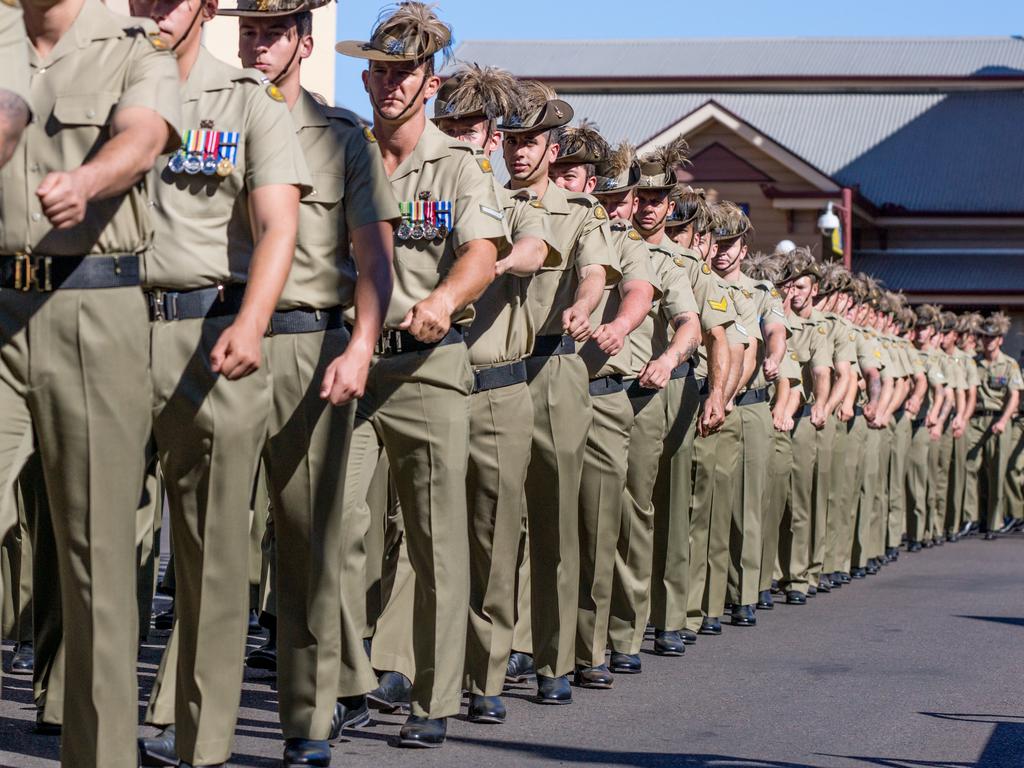Our enemies could put a digital stranglehold on us during a conflict

What does this mean for the Australian Defence Force and nationally? Three big implications stand out.
First, Defence is as vulnerable as any other part of Australian society, drawing power from the electricity grid and overwhelmingly dependent on just-in-time international delivery of petrol, oils and lubricants and every conceivable manufactured item.
Only fleetingly in the First and Second World Wars did our industrial capabilities provide the war-fighting needs of our forces. As manufacturing eroded postwar, the ADF became as dependent as our wider society on overseas supplies. Few thought we might be in a conflict where we couldn’t source equipment from our allies.
We have thought of cyber vulnerabilities mostly as an espionage risk. The idea that a hostile power might plant malware to damage industrial control systems in critical infrastructure or even household technology is a niche security worry.
The second big implication is that the ADF has no capacity to sustain military operations for more than a few days, even if supply chains aren’t disrupted. Ammunition? War stocks wouldn’t last a quiet afternoon on Ukraine’s eastern front. Fuel? Defence will want first dibs on paltry national supplies. Food? Defence rations come from where you stock your pantry.

The third implication is that national physical and virtual supply chains will be disrupted, impacting the whole country. A smart enemy will do everything to isolate Australia from its allies and to break any internal systems keeping the nation on its feet.
Successive Australian governments have been told this by security agencies. Labor’s April 2024 National Defence Statement hints at the risk, saying we need to bolster “Australia’s ability to anticipate, prevent, absorb and recover from natural and human-induced threats and hazards”.
That’s code for: how do we function after all communications have been cut, Defence bases have been destroyed and basic services crippled?
Modern war is so unthinkable, governments choose not to think about it. The problem is so ugly and difficult that the “solution” has been to lock it in a Defence headquarters’ safe. If you doubt that, look for the advice provided to Defence Minister Richard Marles by Stephen Smith and Sir Angus Houston in their 2023 Strategic Defence Review.
Marles asked what was needed for ADF preparedness and mobilisation. The answer is kept under wraps. Government is ducking it because they don’t want to spend more money on Defence, or boost national security, or raise the issue publicly. They pretend instead to have “stabilised” relations with Beijing.

To Israel, Hezbollah is a dangerous enemy but perhaps not the smartest outfit. They bought from Israeli front companies the devices that destroyed their own military command structure.
China is different. It’s us that buys from them. The Chinese security establishment is huge, well-funded with a sophisticated strategic culture emphasising surprise attack and pre-emption. It has spent decades thinking about how it can attack the societies and military forces of its enemies.
Contrary to Defence language and ministerial speeches, this is not hidden or opaque. Chinese military thinking is widely available in professional journals, in huge volumes of online propaganda, in Xi Jinping’s speeches, and shown in constant military exercises.
What does this mean for Australia and the ADF in the event of a large-scale conflict in the Pacific?

China would work hard to cut international communications, literally severing submarine cables carrying the bulk of Pacific internet traffic; scrambling communications with satellites and cutting links to global positioning systems.
China could hit kill switches on industrial control systems – freezing cranes unloading containers from ships; frying circuitry in power grids and logistic networks; overloading internet-linked computer systems in government departments.
Could China copy Mossad by supplying and exploding the communications devices of ADF commanders? Never say never. Some Defence protections are in place but they are designed for an earlier, less threatening era.

In a war, China would set out to cause havoc at a national level through cyber and malware disruptions. Defence would struggle to delink from its dependence on national supply chains. There are few fallback arrangements.
On Monday, the Department of Home Affairs said it was “engaging with the US government to understand the implications of any proposed regulation” banning Chinese software and components in motor vehicles.
The US judges this technology could access, track data and manipulate vehicles. We are right to monitor US actions but where is the sense of Australian urgency? What impact might Chinese vehicle technology have, for example, on the highly identifiable Comcar fleet driving our political leaders?
Defence runs one of the country’s largest commercial vehicle fleets at 6000 vehicles. What security assessments have been made about these vehicles?

It is a certainty that China is looking for such vulnerabilities and developing plans to exploit them. They will have higher priority targets such as Taiwan, Japan and the United States, but Australia will be on Beijing’s list.
Marles is the only member of Anthony Albanese’s cabinet to admit that “we do have security anxieties in relation to China”. He should know that Australia needs a huge effort to build greater national resilience. But who’s assessing the threat, quantifying the risk and developing responses?
As always, the vibe from Canberra is torpor. Is that a pager we hear beeping?
Peter Jennings is director of Strategic Analysis Australia and was executive director of the Australian Strategic Policy Institute. He is a former deputy secretary for strategy in the Defence Department. Anthony Bergin is a senior fellow at Strategic Analysis Australia and an expert associate at the National Security College.





Defence and security agencies around the world – the smart ones – are rethinking their vulnerabilities after Israel’s pager and walkie-talkie attacks on Hezbollah. Even terrorist organisations are vulnerable to global supply chain warfare.